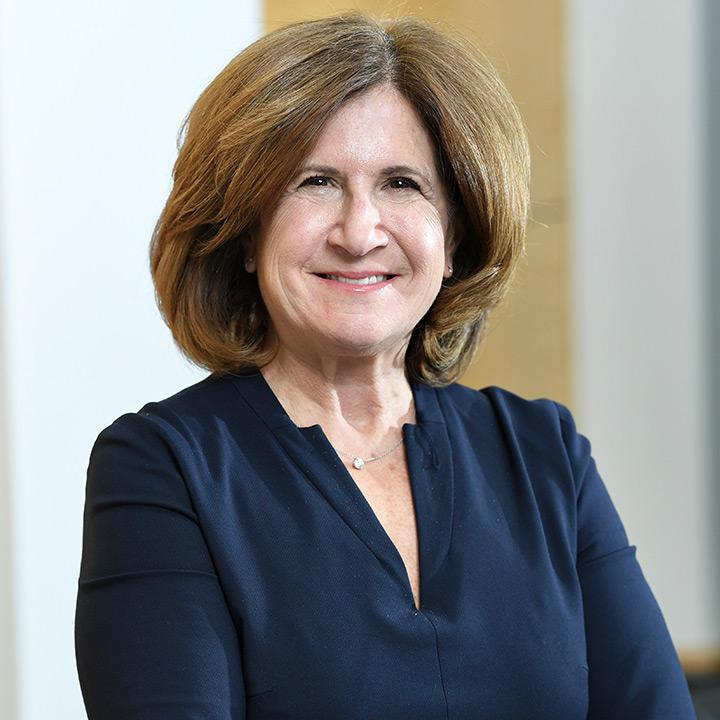Haub Professor Leslie Garfield Tenzer speaks to The Journal News about the New York bills in the state Legislature that would prevent social media platforms from providing minors under 18 with addictive feeds without parental consent that the Supreme Court could upend.

Leslie Y. Garfield Tenzer
Biography
Professor Leslie Y. Garfield Tenzer is the Luk-Cummings Family Faculty Scholar at Elisabeth Haub School of Law at Pace University. She served as the James D. Hopkins Professor of Law Chair from 2019-2021. Professor Tenzer's scholarship and teaching bridge the worlds of theory and practice, with a particular focus on regulating conduct in the digital age. Prior to coming to Haub Law, Professor Tenzer was a legislative attorney in the Legal Division of the Council of the City of New York. Her responsibilities included drafting legislation, organizing public hearings and coordinating with city agencies and interest groups on the city's legislative process. She currently teaches and writes in the areas of Commercial Law, including Contracts and UCC Article 2, Criminal Law, Torts and Social Media Law. Professor Tenzer's most recent scholarship focuses on legal issues concerning social media.
In addition to her regular teaching at Haub Law, Professor Tenzer is the host of two podcasts, Law to Fact, a podcast for students studying the law, and Legal Tenzer: Casual Conversations on Noteworthy Legal Topics. She frequently works with recent law graduates, court administrators, judges, lawyers, educators, legislative and executive branch officials on projects to improve the communication and administration of justice. She previously served as the chair of the AALS Section on Academic Support. Professor Tenzer has received several awards during her tenure at Pace, including the Goettel Prize for Faculty Scholarship (2020, 2012), the Ottinger Prize for Faculty Achievement (2012-2013; 2003-2004), and Professor of the Year (2014) (voted by the 2014 graduating class).
Education
- BA, University of Florida
- JD, University of Florida College of Law
Publications
View all of Professor Tenzer’s publications on SSRN, Digital Commons or download her CV (PDF).
Some of Her Publications
- Social Media and the Common Law, 88 Bklyn. L. Rev. 227 (2022)
- 2021 A Legal Emoji Dictionary, University of Pittsburgh Law Review 83 (5) (with Ashley Cangro).
- A Period Fail Emoji, Colum. J. Gender & L. (2021)
- The GenZ Juror, 88 Tenn. L. Rev. 173 (2020)
- Social Media, Venue, and the Right to a Fair Trial, 71 Baylor L. Rev. 421 (2019) (awarded Goetell Prize)
- #MeToo, Statutory Rape and the Persistence of Gendered Stereotypes, 2019 Utah L. Rev. 117 (2019)
- “A Call to Respect Pre-Trial Social Media Publicity,” NYU Civil Jury Project (May 2019) (with Richard Montalvo)
- Ratings Fetishism, 39 N.Y.U. Rev. L. & Soc. Change 409 (2015)
- The Paradox of Race-Conscious Labels, 79 Brook. L. Rev. (Fall 2014)
- “Affirmative Action: 1996-Present and Beyond,” in Contemporary Perspectives on Affirmative Action (J. Beckman ed. Praeger Press 2013)
- The Inevitable Irrelevance of Affirmative Action, 39 J.C. & U. L. Rev. 1 (Winter 2013)
Honors & Awards
- Outstanding Professor of the Year, 2014 (voted by graduating class)
- Goettel Prize for Faculty Scholarship, 2012, 2020 (external peer reviewer)
- Ottinger Prize for Faculty Achievement, 2012-2013; 2003-2004 (chosen by faculty peers for service to law school and outside communities)
Areas of Interest
Criminal Law and the Internet, Social Media, Defamation, Homicide, Sale of Goods Contracts, Entertainment Law Contracts, Affirmative Action, Civil Wrongs, Negligence Claims and Intentional Torts, Liability
Related News and Stories
Leslie Y. Garfield Tenzer, a law professor at Pace University, said there is a “gray area” between public officials being able to block people and stop harassment and the rights of others to view online posts. She said the legal protection social media companies enjoy under Section 230 of the Communications Decency Act, which allows the companies to be immune from certain lawsuits over content posted by third parties, should be amended to prevent any online harassment. “If public officials want to stop allowing harassing information, I think they must address it by amending Section 230 of the Communications Decency Act, which is a difficult, if not impossible task,” Ms. Tenzer said. “I also think as a mother, and a social media scholar, that publishing anti-hate rhetoric or posts that teach others to kill should never be permitted. But as long as section 230 exists, I think it is hard to hold social media companies accountable.”